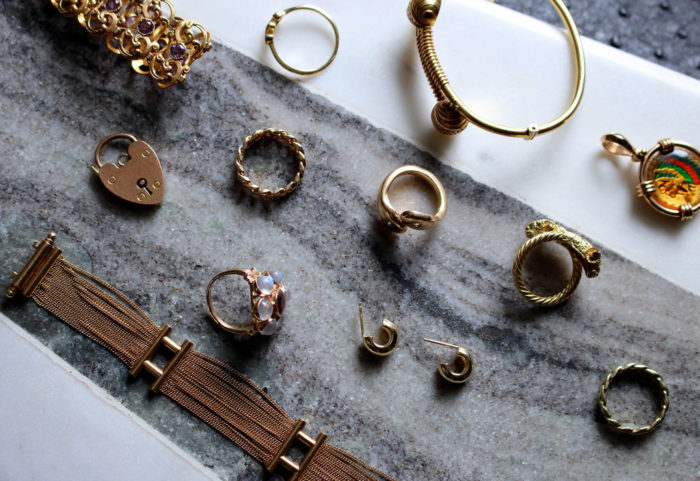The antique jewelry market, like most any business, has always been prone to scammers and dishonesty. But as this niche market keeps expanding more and more dealers pop in and out of the scene — some legitimate and others that are trying to take advantage of the trend. Shopping for estate jewelry takes a certain degree of trust in the people you’re buying from, especially if you’re just learning all the ins and outs. Here are some questions you can ask yourself to help you decide if you’re buying from someone who is worth supporting.
1. Are they GIA certified or have any other accreditations?
To have your GIA certification is arguably the most important feat in the fine jewelry world. This certification shows that the dealer has put a tremendous investment in their education and are much more competent at grading gemstones than someone that doesn’t have it. If you’re buying very high-end antique jewelry, this question should be high on your priority list. What schooling has this person gone through? If they haven’t, have they had someone else that is GIA certified look over the item in question?
2. How many years have they been in business?
Ask me in my first few years of selling antique jewelry if this question was important, and I would still agree that yes, it is. I was so fortunate that so many customers took a chance on me in my early years, but I had a full backing from other partners that had many years experience under their belts. It wasn’t until I had over five years experience that I considered going out on my own. Sometimes it’s worth it to take a chance on someone, but make sure you get to know them a little bit first.
3. Are their prices consistent with other dealers?
Antique jewelry isn’t always an apples to apples comparison. But, in the broad scope, prices for similar pieces should fall within a similar range. Anything that is way off the mark, whether priced too high or too low is a red flag for me.
However, sometimes antique jewelry businesses with lots of employees will have higher prices — they need this markup to survive. This higher price is worth it at times because many of these businesses have access to rare antique jewelry that smaller dealers don’t. Pay a higher price only if that item is rare and other reputable dealers don’t have anything similar for less.
Too cheap a price could indicate that the item is a reproduction, is in poor shape, the dealer is a fly by night, or maybe you just found a bargain. Either way, it’s worth looking into more thoroughly.
4. Do they have a brick & mortar shop or a website?
Any signs that this person has invested time, money and energy into their business is a good thing. Do they have a website, an Etsy shop or a brick and mortar that they keep updated? Are they active on social media? That is a good indicator that this business is their primary source of income, and they take pride in it. People who take pride in their online businesses are less likely to jeopardize it by acting shady.
5. How is their feedback/online reviews?
If the person is selling on Etsy or eBay, it is an absolute no brainer to read as much of their feedback as possible before you purchase. This won’t necessarily be a foolproof method, but it certainly helps when you’re buying on the internet.
6. Do you see any reproductions being passed off as old?
It might be hard to know what reproductions look like from a picture, but they are out there in full force! If you have browsed some sites that openly sell reproduction jewelry like Jan’s Jewells, you’ll have some idea which items are being remade. If you catch a reproduction being passed off as old, or the description is vague using terms like “antique-style Art Deco ring”, this is a red flag. Let me know if you’re interested in more ways you can spot reproductions online because there’s a lot that can be said here!
7. Do you notice that some items aren’t dated?
I’ve seen it where some antique jewelry dealers want to sell reproductions (they are easier to find and are cheaper), but they don’t want to be upfront about it for whatever reason. If you spot jewelry on a dealer’s site that has no mention of the item’s age at all, this is a red flag. Ask them openly if the item is new or old, and hopefully, if they passed a lot of these other questions, they’ll be honest and tell you.
At Johantgen Jewelers we love antique jewelry and the excitement that can surround certain pieces! We thought we would share this detailed antique buyers how-to which was originally posted on Gem Gossip.
